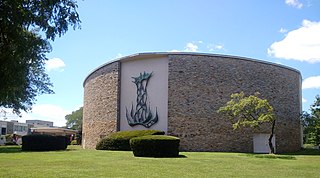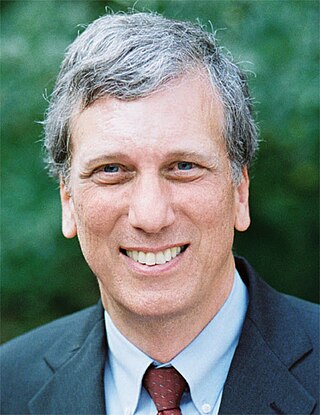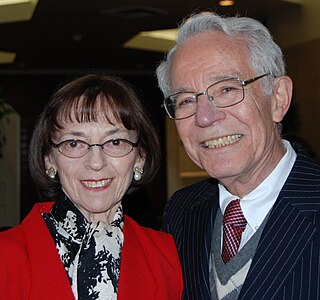Related Research Articles

Conservative Judaism is a Jewish religious movement that regards the authority of Jewish law and tradition as emanating primarily from the assent of the people through the generations, more than from divine revelation. It therefore views Jewish law, or Halakha, as both binding and subject to historical development. The conservative rabbinate employs modern historical-critical research, rather than only traditional methods and sources, and lends great weight to its constituency, when determining its stance on matters of practice. The movement considers its approach as the authentic and most appropriate continuation of Halakhic discourse, maintaining both fealty to received forms and flexibility in their interpretation. It also eschews strict theological definitions, lacking a consensus in matters of faith and allowing great pluralism.

Louis Ginzberg was a Russian-born American rabbi and Talmudic scholar of Lithuanian-Jewish descent, contributing editor to numerous articles of The Jewish Encyclopedia (1906), and leading figure in the Conservative movement of Judaism during the early 20th century.

The Jewish Theological Seminary (JTS) is a Conservative Jewish education organization in New York City, New York. It is one of the academic and spiritual centers of Conservative Judaism and a center for academic scholarship in Jewish studies. The Jewish Theological Seminary Library is one of the most significant collections of Judaica in the world.

Louis Finkelstein was a Talmud scholar, an expert in Jewish law, and a leader of the Jewish Theological Seminary of America (JTS) and Conservative Judaism.
Joel Roth is a prominent American rabbi in the Rabbinical Assembly, which is the rabbinical body of Conservative Judaism. He is a former member and chair of the assembly's Committee on Jewish Law and Standards (CJLS) which deals with questions of Jewish law and tradition, and serves as the Louis Finkelstein Professor of Talmud and Jewish Law at the Jewish Theological Seminary of America in New York City, where he formerly served as dean of the Rabbinical School. He is also Rosh Yeshiva of the Conservative Yeshiva in Jerusalem, Israel, an institution founded and maintained by the United Synagogue for Conservative Judaism and under the academic auspices of JTS. In 2006, Rabbi Roth took over as chair of the Hebrew Language department at JTS. Rabbi Roth is a well-known teacher of Hebrew grammar. He is a vociferous proponent of the existence of the "sheva merakhef".
Amy Eilberg is the first female rabbi ordained in Conservative Judaism. She was ordained in 1985 by the Jewish Theological Seminary of America, one of the academic centers and spiritual centers of Conservative Judaism.

Chizuk Amuno Congregation is a Conservative Jewish congregation and synagogue, located on Stevenson Road, in Pikesville, a suburb of Baltimore, Maryland, in the United States.

Gordon Tucker is a prominent rabbi, with a reputation as both a political and a theological liberal in Conservative Judaism. He is the former senior rabbi of Temple Israel Center in White Plains, New York. Since September 2020, he has served as the Vice Chancellor for Religious Life and Engagement at the Jewish Theological Seminary of America.

Arnold M. Eisen is an American Judaic scholar who was Chancellor of the Jewish Theological Seminary in New York. He stepped down at the end of the 2019-2020 academic year. Prior to this appointment, he served as the Koshland Professor of Jewish Culture and Religion and chair of the Department of Religious Studies at Stanford University. Prior to joining the Stanford faculty in 1986, he taught at Tel Aviv University and Columbia University.
Ismar Schorsch is the Chancellor emeritus of The Jewish Theological Seminary (JTS) and the Rabbi Herman Abramovitz Professor of Jewish history.
Lee I. Levine is an American-born Israeli rabbi, archaeologist and historian of classical Judaism. He is a strong believer in the ability of the Jewish people and Judaism to adapt to local settings as a key to survival. He is the author of Judaism and Hellenism in Antiquity and The Ancient Synagogue, one of the most comprehensive texts on the subject.
Criticism of Conservative Judaism is widespread in the Orthodox Jewish community, although the movement also has its critics in Reform Judaism and in other streams of Judaism. While the Conservative movement professes fidelity to Jewish tradition, it considers Halakha to be a dynamic process that needs reinterpreting in modern times. The criticism by Orthodox Jews and traditionalists within the movement itself revolves around the following:
Camp Ramah in the Berkshires, near Wingdale, New York, is one of nine overnight summer camps and three day camps affiliated with the Conservative Movement of Judaism and the National Ramah Commission. It is accredited by the American Camp Association. The camp sits on 299-acre (1.21 km2) site in Dutchess County, New York, about 30 miles (48 km) southwest of the Massachusetts border and the Berkshire Mountains, on Lake Ellis.
Simon Greenberg was a Russian-born American Conservative rabbi and scholar. Greenberg was part of the senior management of many Jewish organizations in America. He helped to found a number of institutions, including the American Jewish University, of which he was the first President. At the time of his death, he was vice chancellor emeritus of the Jewish Theological Seminary of America. Greenberg has been called "one of the most important leaders of the Conservative movement".

David L. Lieber (1925-2008), rabbi and scholar, was president emeritus of the University of Judaism and the senior editor of the Etz Hayim Humash. He helped pioneer the Ramah camps, serving as the founding head counselor in the first of the camps in Wisconsin, a director in Maine, the founding director of Camp Ramah in California, and the founding director of the Mador.
The Leadership Council of Conservative Judaism, also known as the LCCJ, is a council made up of members of the various arms of the Conservative movement, a formal movement within the Jewish denomination of Conservative Judaism.
Harold Louis Ginsberg,, commonly known as H. L. Ginsberg, was a professor of biblical literature at the Jewish Theological Seminary of America in New York City in the 20th century.
Burton L. Visotzky is an American rabbi and scholar of midrash. He is the Appleman Professor of Midrash and Interreligious Studies, Emeritus at the Jewish Theological Seminary of America (JTS).
Sylvia Cutler Ettenberg was a Jewish educator at the forefront of many Conservative Jewish educational initiatives and was one of the founders of the Camp Ramah camping movement. A graduate of Brooklyn College and the Jewish Theological Seminary of America (JTS), she was invited by JTS Chancellor Louis Finkelstein to join the JTS administration in 1946. Ettenberg served as registrar and oversaw the development of the Teachers Institute and Seminary College of JTS. Along with Rabbi Moshe Davis, a dean at JTS, she was responsible for establishing the Ramah camping movement as a program of JTS. She was also instrumental in founding JTS's supplementary high school (Prozdor) program, its Melton Research Center, and, later, its William Davidson Graduate School of Jewish Education, and she played a key role in the development of List College's joint program with Columbia University. Sylvia Ettenberg died on June 21, 2012

Masorti on Campus (MoC) is a student organization for Conservative Judaism on North American college and university campuses, working with Hillel and other Jewish campus life organizations.
References
- ↑ The Jewish Theological Seminary - Michael Greenbaum Archived 2011-01-01 at the Wayback Machine Official JTS Biography
- ↑ National Ramah Commission Members List
- ↑ Conservative Judaism Journal: Volume 56 (Fall 2003) Archived 2010-11-27 at the Wayback Machine
- ↑ 50 Influential Rabbis (2009) Compiled by Sony Pictures Entertainment Chairman & CEO Michael Lynton, News Corporation Executive Vice President Gary Ginsberg and JTN Productions CEO Jay Sanderson
- ↑ Top 50 Influential Rabbis in America (2008) Generated by Michael Lynton, (chairman & CEO, Sony Pictures Entertainment), Gary Ginsberg, (executive VP, global marketing and corporate affairs, News Corp.) and Jay Sanderson, (CEO and executive producer, JTN/JTN Productions)
- ↑ Louis Finkelstein and the Conservative Movement Archived 2011-07-19 at the Wayback Machine Global Academic Publishing at Binghamton University